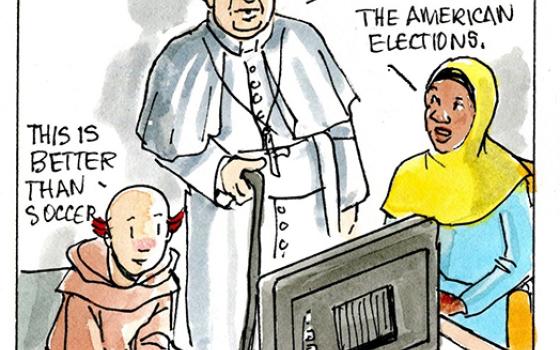He was criticized by many Christians for his controversial movie "The Last Temptation of Christ," but a new review of Martin Scorsese's work paints the director as one of America's most Catholic filmmakers.
Even beyond "Last Temptation," Scorsese has rarely achieved widespread acceptance; his films are often called too dark and tragic for general audiences. Movies like "Raging Bull" and "Gangs of New York" can seem bleak for bleakness sake -- offering nothing more than a downbeat take on a cynical world.
But in the July edition of Harper's Magazine, Vince Passaro writes passionately about how Scorsese's strong Italian Catholic upbringing lies at the heart of the stories he tells on film. In interviews, Scorsese has admitted that one of his great themes is betrayal -- and Passaro notes that in each movie, Scorsese's turncoat ends up alone, isolated from society, a Judas who pays a heavy price. More than that, Passaro writes, Scorsese's tragic figures demonstrate "what becomes of men who are separated from God, men who are lost."
The great tragic flaw of Scorsese's characters is the belief they can get by without God, and without moral choices: the violent boxer in "Raging Bull," the crazed vigilante of "Taxi Driver," even the soaringly wealthy and successful Howard Hughes at the center of "The Aviator." Each believed he didn't need God (or perhaps were God-like themselves), and paid a deep price: loneliness, insanity, death.
Tragedy, Passaro writes, is not widely accepted in American culture -- we celebrate success, triumph against great odds. Tragedy tells us that sometimes men cannot overcome who they are, that their broken nature will remain broken, even with the trappings of fame, power or money. So most mainstream filmmakers avoid the tragic vision at all costs. Scorsese, pulling from his Catholic understanding of humanity, is one of the few who can bring real, classical tragedy to life.
Pain, suffering, the chance at redemption and the failure at times to achieve it -- all part of what Catholics know about the human experience. Not all of that experience, to be sure. But a part of it that few movie directors explore.
(Full disclosure: Passaro, Harper's publisher Rick MacArthur, and I are friends from our college days. More disclosure: Harper's does not make all printed articles available online. I encourage you to buy this edition of the magazine, or visit a local library, and hold the actual thing in your hands.)




